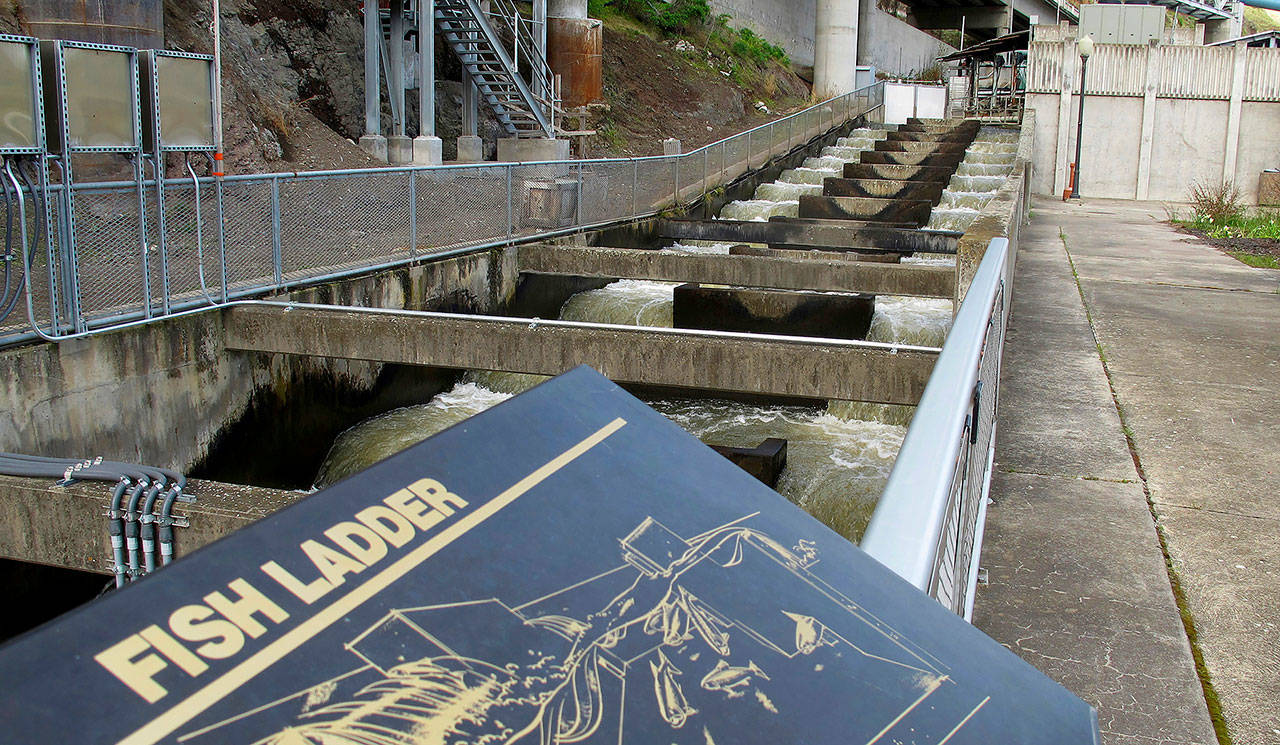Associated Press
LEWISTON, Idaho — An Environmental Protection Agency report provides details about how federal government dams in the Snake and Columbia river system raise summer water temperatures, hurting endangered salmon runs.
The report made public Tuesday said dams on both rivers play a role in raising water temperatures above 68 degrees, which is the point at which the water becomes harmful to salmon and steelhead.
The Lewiston Tribune said the report also noted that the Snake River often exceeds temperature standards before it enters Washington from Idaho, as does the Columbia River when it enters Washington from Canada.
The report is likely to play a role in the long-simmering debate over the role dams play in the decline of threatened and endangered Snake River salmon and steelhead.
The dams generate electricity, allow cargo to be moved on river barges and provide irrigation water to farmers.
By slowing the flow and increasing the surface area exposed to the sun, the dams cause the Snake River to increase as much as 5.7 degrees, according to the report.
Temperatures higher than 68 degrees can cause adult fish to stop their migrations and swim around aimlessly like they are lost during their return from the ocean. When rivers warmed into the 70s in 2015 and stayed there for weeks, there were significant fish kills.
While there are other sources of rising temperatures in the river, the dams play the largest role, the report said.
Environmental groups hailed the report as a needed step toward lowering temperatures and improving conditions for salmon and steelhead.
Following the 2015 heat event that killed off sockeye, a coalition of river preservation groups including Columbia Riverkeeper, Snake River Waterkeeper and Idaho Rivers United went to court to force the EPA to finish writing the report that had been stalled for nearly two decades.
“We are pleased that it’s done and identifies the hot water problems on the Columbia and Snake rivers,” said Brett VandenHeuvel, executive director of Columbia Riverkeeper.
It will largely be up to the states to determine how water quality problems identified in the report should be addressed. VandenHeuvel said removing the lower Snake River dams or putting holes in them would help meet water quality standards as well as boost salmon and steelhead.
“The water temperatures in the Snake are so hot in the summer that I think dam removal is the best way to restore salmon and provide water cool enough for their survival,” he said.
But Kurt Miller, executive director of Northwest River Partners, would prefer that regulators in Oregon and Washington re-examine their water quality standards.
“The states may have established water quality standards that are unattainable even if the lower Snake and mid-Columbia river dams were not in place,” he said. “It would be unfair to penalize the communities that rely on hydropower for river temperatures way beyond their control.”
Environmental groups have long called for four dams on the Snake River in eastern Washington to be removed to help salmon and steelhead migrate to the ocean and back. But the dams have plenty of supporters, including some members of Congress and business groups.
Talk to us
> Give us your news tips.
> Send us a letter to the editor.
> More Herald contact information.

























